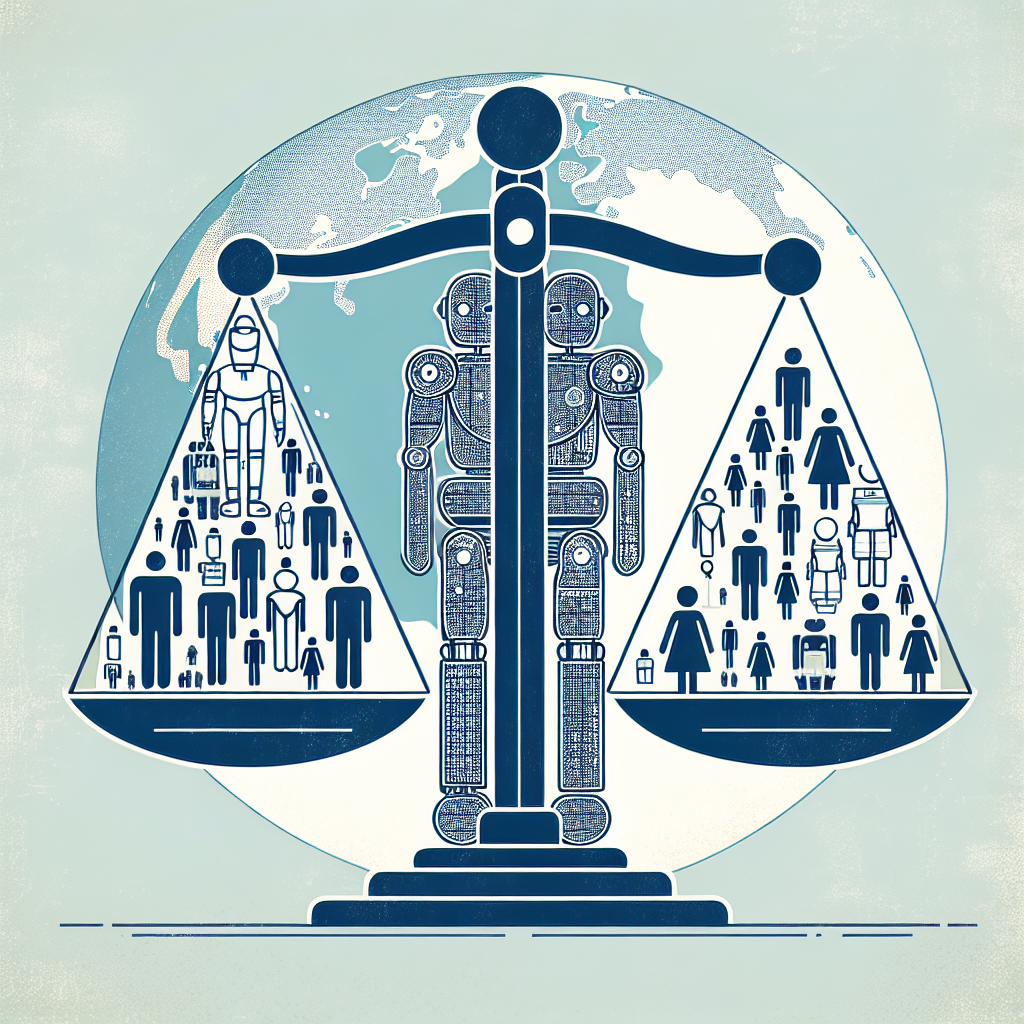The rise of artificial intelligence (AI) has brought about many opportunities and challenges for society. One of the key trends in recent years has been the democratization of AI, which refers to the increasing accessibility and affordability of AI technology to a wider range of users. While this democratization has the potential to bring about many benefits, there are also significant ethical implications that need to be considered.
One of the main ethical concerns surrounding AI democratization is the potential for bias and discrimination. AI systems are only as good as the data they are trained on, and if this data is biased in any way, it can lead to discriminatory outcomes. For example, if a facial recognition system is trained on a dataset that is predominantly white, it may have difficulty accurately identifying individuals with darker skin tones. This can lead to harmful consequences, such as misidentification by law enforcement or denial of services based on race.
Another ethical concern is the impact of AI on privacy and surveillance. As AI technology becomes more widespread, there is a growing concern about the potential for mass surveillance and invasion of privacy. For example, AI-powered facial recognition systems can be used to track individuals without their consent, leading to a loss of privacy and autonomy. This raises questions about who has the right to use AI technology and for what purposes.
Additionally, the democratization of AI raises questions about accountability and responsibility. As AI systems become more autonomous and make decisions that affect individuals and society as a whole, it becomes crucial to establish clear guidelines for accountability. Who is responsible if an AI system makes a harmful decision? How can we ensure that AI systems are transparent and accountable for their actions?
Furthermore, the democratization of AI can also exacerbate existing inequalities in society. For example, if AI technology is only accessible to those who can afford it, it may widen the gap between the haves and the have-nots. This raises important questions about how to ensure that AI technology is accessible to all, regardless of socioeconomic status.
In light of these ethical implications, it is important for policymakers, researchers, and industry leaders to consider the following questions:
1. How can we ensure that AI technology is developed and deployed in an ethical and responsible manner?
2. What steps can be taken to address bias and discrimination in AI systems?
3. How can we protect privacy and autonomy in the age of AI democratization?
4. What measures can be put in place to ensure accountability and transparency in AI systems?
5. How can we mitigate the impact of AI on existing inequalities in society?
In conclusion, the democratization of AI has the potential to bring about many benefits, but it also raises significant ethical implications that need to be carefully considered. By addressing issues such as bias, discrimination, privacy, accountability, and inequality, we can ensure that AI technology is developed and deployed in a way that benefits society as a whole. It is crucial for all stakeholders to work together to build a future where AI technology is used responsibly and ethically.
FAQs:
Q: What is AI democratization?
A: AI democratization refers to the increasing accessibility and affordability of AI technology to a wider range of users. This trend aims to make AI technology more inclusive and accessible to all, regardless of socioeconomic status.
Q: What are some ethical implications of AI democratization?
A: Some ethical implications of AI democratization include bias and discrimination, privacy and surveillance concerns, accountability and responsibility issues, and exacerbation of existing inequalities in society.
Q: How can we address bias and discrimination in AI systems?
A: To address bias and discrimination in AI systems, it is important to ensure that the data used to train these systems is diverse and representative of the population. Additionally, AI developers should implement measures to detect and mitigate bias in their algorithms.
Q: What steps can be taken to protect privacy and autonomy in the age of AI democratization?
A: To protect privacy and autonomy, policymakers can implement regulations that restrict the use of AI technology for surveillance purposes. Additionally, companies can implement privacy-enhancing technologies and practices to ensure that user data is protected.
Q: How can we ensure accountability and transparency in AI systems?
A: To ensure accountability and transparency in AI systems, developers should implement mechanisms for auditing and explaining the decisions made by AI algorithms. Additionally, policymakers can establish guidelines for accountability and responsibility in the use of AI technology.
Q: How can we mitigate the impact of AI on existing inequalities in society?
A: To mitigate the impact of AI on existing inequalities, it is important to ensure that AI technology is accessible to all, regardless of socioeconomic status. This can be achieved through initiatives that promote diversity and inclusion in the development and deployment of AI systems.

